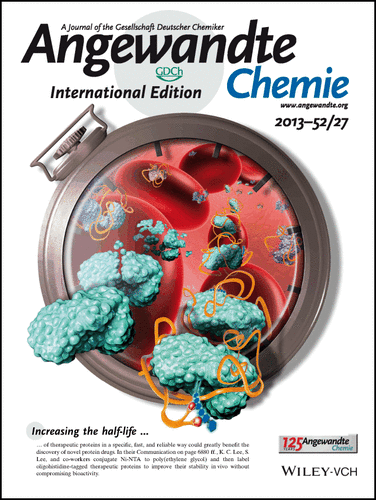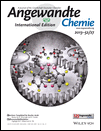Back Cover: Mix to Validate: A Facile, Reversible PEGylation for Fast Screening of Potential Therapeutic Proteins In Vivo (Angew. Chem. Int. Ed. 27/2013)
Graphical Abstract
Increasing the half-life of therapeutic proteins in a specific, fast, and reliable way could greatly benefit the discovery of novel protein drugs. In their Communication on page 6880 ff., K. C. Lee, S. Lee, and co-workers conjugate Ni-NTA to poly(ethylene glycol) and then label oligohistidine-tagged therapeutic proteins to improve their stability in vivo without compromising bioactivity.





